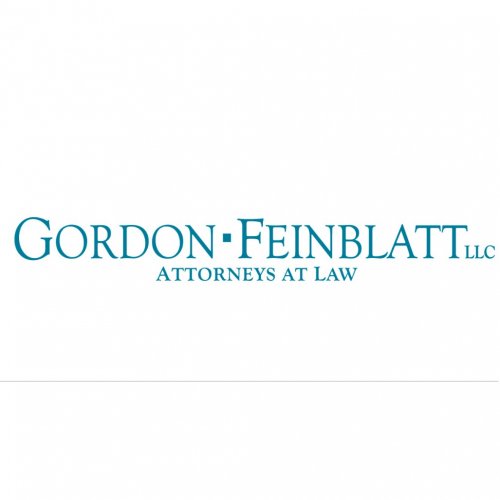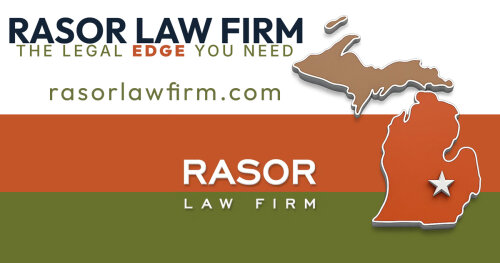Best Domestic Violence Lawyers in Maryland
Share your needs with us, get contacted by law firms.
Free. Takes 2 min.
Free Guide to Hiring a Family Lawyer
Or refine your search by selecting a city:
List of the best lawyers in Maryland, United States
About Domestic Violence Law in Maryland, United States
Domestic violence is a serious issue addressed by specific laws in Maryland. The state recognizes domestic violence as a pattern of abusive behavior used by one partner to gain or maintain control over another partner in an intimate relationship. Abuse can take many forms, including physical harm, threats, intimidation, emotional abuse, financial control, and sexual abuse. Maryland's laws are designed to protect victims and hold offenders accountable through criminal and civil processes, including protective orders and criminal charges.
Why You May Need a Lawyer
There are several common situations where those affected by domestic violence in Maryland may need legal assistance:
- You are a victim seeking protection from an abusive partner or household member.
- You have been accused of domestic violence and need representation to ensure your rights are protected.
- You are facing a hearing for a protective or peace order, which can impact child custody, housing, employment, and your record.
- You need help navigating child custody and divorce issues complicated by allegations or experiences of domestic violence.
- You require guidance on how to collect evidence, file police reports, or pursue criminal charges.
- You need help understanding the consequences of a domestic violence conviction or protective order.
A lawyer experienced in Maryland domestic violence law can help you understand your options, prepare for court, and work to secure the best possible outcome.
Local Laws Overview
Maryland addresses domestic violence under both criminal and civil law. The key legal instruments include:
- Protective Orders - Also known as restraining orders, these are court orders designed to prevent further abuse. Protective orders may require the abuser to stay away from the victim, leave a shared home, surrender firearms, and follow custody arrangements.
- Peace Orders - For certain relationships not covered by protective orders, peace orders offer similar protections.
- Definition of Abuse - Maryland law defines abuse to include acts such as assault, rape, stalking, false imprisonment, and threats of harm.
- Eligibility - Protective orders are available to victims who have certain relationships with the respondent, such as spouses, blood relatives, people with a child in common, cohabitants, or sexual partners.
- Enforcement - Violating a protective or peace order is a criminal offense. Law enforcement must take such violations seriously and can arrest violators without a warrant in certain circumstances.
- Criminal Penalties - In addition to protective measures, abusers may face criminal prosecution for assault, harassment, or other offenses related to domestic violence.
Maryland provides both immediate temporary protections and longer-term relief through court proceedings. The courts can make decisions related to support, custody, visitation, and housing when issuing orders.
Frequently Asked Questions
What counts as domestic violence in Maryland?
Domestic violence in Maryland includes physical assault, threats of harm, sexual assault, stalking, false imprisonment, and child abuse when committed against a person in a qualifying relationship.
Who can get a protective order in Maryland?
You may obtain a protective order if you are a current or former spouse, a person related by blood or marriage, a person you have lived with for at least 90 days in the past year, a person you share a child with, a vulnerable adult, or someone you have had a sexual relationship with in the past year.
What is the difference between a protective order and a peace order?
A protective order is for people with certain personal relationships with the abuser, while a peace order covers other situations where there is abuse but the relationship does not meet the protective order criteria.
How do I file for a protective order?
You can file a petition for a protective order at a district or circuit court during business hours or at a commissioner’s office after hours. There is no filing fee, and court personnel can help you with the process.
What happens after I file for a protective order?
A judge may grant a temporary order the same day. A full hearing is usually scheduled within a week, where both parties can present evidence before a final order is issued.
What protections can I get from a protective order?
A protective order can require the abuser to stay away from you, stop contacting you, leave your home, surrender firearms, grant you temporary custody or child support, and offer other relief as needed.
Will getting a protective order affect custody or divorce proceedings?
Yes, information about abuse and the outcome of protective order hearings can impact related family law matters, such as custody, visitation, and divorce settlements.
Can I be arrested for violating a protective order?
Yes, violating a protective order or peace order is a criminal offense in Maryland. Law enforcement can arrest violators, and penalties can include fines or jail time.
Can someone falsely accused of domestic violence get legal help?
Absolutely. If you are falsely accused, it is important to seek legal counsel to present evidence and defend your rights, as protective or peace orders can have long-lasting consequences.
Are there resources for victims who do not speak English?
Yes, many courts and local domestic violence support organizations in Maryland provide services for non-English speakers, including translation and culturally sensitive support.
Additional Resources
If you or someone you know is affected by domestic violence in Maryland, there are many organizations and resources that can provide help and information:
- Maryland Network Against Domestic Violence (statewide coordinator for local support services)
- House of Ruth Maryland (legal support, shelter, and counseling for victims)
- Maryland Legal Aid (offers free or low-cost legal services to eligible individuals)
- Local police departments (for immediate protection and reporting crimes)
- Maryland Courts - Domestic Violence Help Centers (free walk-in services in select courthouses)
- National Domestic Violence Hotline (provides crisis intervention, support, and referral information)
- County Health Departments and Social Services Offices
Next Steps
If you believe you need legal assistance with a domestic violence matter in Maryland, consider the following steps:
- Prioritize your immediate safety - contact law enforcement or a local shelter if you are in danger.
- Gather relevant documents and information, such as evidence of abuse, communication records, and identification.
- Consult with a lawyer experienced in Maryland domestic violence law for an assessment of your situation and guidance on protective orders or other legal options.
- Reach out to local support organizations for emotional, financial, and shelter support as needed.
- Attend all court hearings and comply with court orders; maintain records of incidents and interactions.
Protecting yourself and your loved ones is your first priority. Seeking qualified legal advice gives you the best chance of ensuring your rights are upheld and securing the protection you need under Maryland law.
Lawzana helps you find the best lawyers and law firms in Maryland through a curated and pre-screened list of qualified legal professionals. Our platform offers rankings and detailed profiles of attorneys and law firms, allowing you to compare based on practice areas, including Domestic Violence, experience, and client feedback.
Each profile includes a description of the firm's areas of practice, client reviews, team members and partners, year of establishment, spoken languages, office locations, contact information, social media presence, and any published articles or resources. Most firms on our platform speak English and are experienced in both local and international legal matters.
Get a quote from top-rated law firms in Maryland, United States — quickly, securely, and without unnecessary hassle.
Disclaimer:
The information provided on this page is for general informational purposes only and does not constitute legal advice. While we strive to ensure the accuracy and relevance of the content, legal information may change over time, and interpretations of the law can vary. You should always consult with a qualified legal professional for advice specific to your situation.
We disclaim all liability for actions taken or not taken based on the content of this page. If you believe any information is incorrect or outdated, please contact us, and we will review and update it where appropriate.
Browse domestic violence law firms by city in Maryland
Refine your search by selecting a city.















